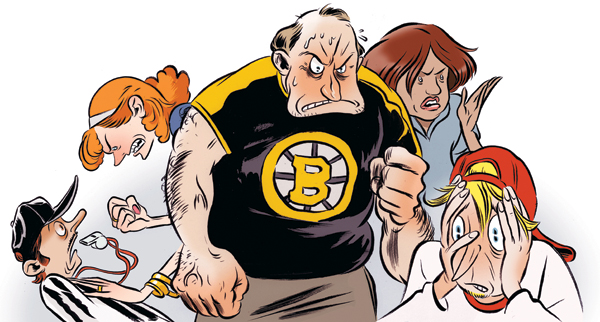The big sports story in Boston this week is of course the World Series. But it's also significant that this week it's not Boston-based parents who are the subject of the bad sports parent story making national headlines. As I've written about before in Boston Magazine, youth sports in Massachusetts tend to be extremely competitive and lead to some ill-behavior.

In the tournament showdown in the piece hockey parents took the "prize," so it's no surprise that when a parent got in a fight at a youth sporting event and actually punched a CHILD, it was at a hockey game. A 14-year-old was punched in the face by a 44-year-old chiropractor in Palm Beach County, FL. Dr. Matthew Supran was arrested after also pounding the child's head into the boards. It must be noted that Palm Beach is an affluent area and Supran is obviously educated-- showing that the intense competitive youth culture impacts people even at the higher ends of the class structure.
Earlier this month an article I wrote for The Atlantic on the history of on competitive youth sports helped inspire this NYT's Room for Debate, which provoked some thoughtful responses and comments on how to balance these activities for kids. Of course the focus should be on kids, and not parents. A mix of fun and seriousness seems to be the right mix, but it's hard to get that exactly right.
And, of course, participation in these activities isn't free-- not even close. Last weekend NBC Nightly News did a segment on two baseball playing brothers at IMG Academies and how much their parents pay each year (close to six-figures for *each* of them). As you'll see around 1:43 of this clip, I make an appearance emphasizing how important it is to not just focus on one activity for the health of your child, by which I mean both physically and psychologically.
While this post may seem a bit negative, it is important to remember that there are also many benefits to participation in youth sports, as I wrote about last week for The Robert Wood Johnson Foundation's Human Capital blog (a Foundation that has funded parts of my research). In fact I emphasize that the impact of participation can be so great that we need to work to ensure that *all* children have access to the skills and lessons youth sports help develop, and not just the kids whose parents can invest six-figures and who live in Palm Beach...


